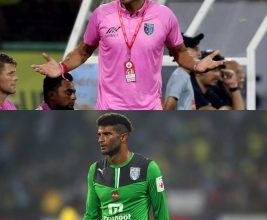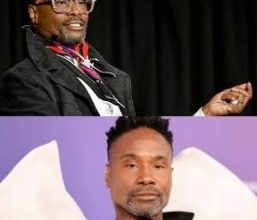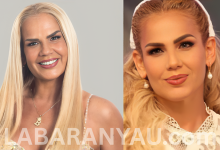How did Adeyinka Alaseyori get into music?
It’s been 12 years and going on 13. It was tedious at first, but we stuck with it. We worship God in our secret place, and He chooses to put us into the spotlight. Music is my life; it is what I do for God without cameras or social media.
You must’ve started in the church, right?
Yes, I grew up at CAC, and that’s where it all began for me.
What was it like to transition from the church to the spotlight?
Every gospel performer who wishes to go global has always looked to the church for inspiration. Every star has a base, which could be the church choir, a children’s choir, or something else. It is a location where we all go, and the Lord will prepare us there since he knows where he is sending us. We don’t know what the future holds, but He does. So, bringing us to church on a regular basis prepares us for an unknown future in ways we can’t even understand. I thank God for my parents. They take us to church to learn. Even as children, we attended family service (Eko Idile), where we learned a lot, were groomed, and sang the majority of time.
We had no idea that during that period, the Lord was preparing us for something bigger. Before entering the spotlight, I was aware that I had been singing, but I wasn’t just famous; I’d been there. It wasn’t like I started in one day and got renowned overnight. I’ve been working underneath. Today at home, I was pondering by myself how God raises people from obscurity to renown. It’s not about work or ability, since I’ve been listening to some really talented people who are unknown.
I just realized that there must be something he looks for in people that we all don’t know. Nobody knows what he’s searching for; all we know is that we’re all doing our best, but there must be something that influences his decision on who he wants to elevate up. That is God, and he is just indisputable.
Which song would you say kept you out of the limelight?
It is Arojinle.
Did you compose it?
Arojinle was solely composed by me. (singing) Mo ro arojinle lori aiye mi o, ibi aanu baye mi de o, arojinle ni mo ro… This translates to “I had a deep thought over my life, and the extent mercy has seen me off to is as a result of the deep thoughts.” and some other songs like (ese, ese, ese, ooo, ese Oluwa) thank you, thank you, thank you Lord; and other songs that we grew up with in CAC; I don’t know who wrote some of those songs, but I grew up with some of them from childhood. Arojinle was spontaneous worship, but the Lord simply gave it a another name, and Oniduro was also included in the songs.
In this business for around 13 years, how many albums have you made in total?
To God be the glory, I have three albums and a few singles. Part of them were He made a way and Aiye Ope Yo, and I believe the CD is also released.
We’ve discussed the past; now let’s consider the future. What do we anticipate from you?
This year, I believe I will be filming more singles. The Lord has been giving me more songs back to back; I’m not sure how, but one of them is Aanu lo bi (Mercy produced this). When people see you performing well, some assume it’s a charm. People call and ask if I can take them to where I pray, but I don’t have somewhere. People think I’m doing something extraordinary, but it’s not.
So when the Lord sent me the song about how it is his kindness that has made some people appear to be experts, rather than their work or how they do it, I could connect to it well. The mercy of God distinguishes that person from others. You can have two persons working on the same job at the same workplace and one doing considerably better than the other; sometimes it is not due to the person’s efforts, but to God’s grace. I believe the song will be another fantastic song that everyone can identify to because my songs have always been about my life and the people around me.
People can truly relate to what I’m saying and the themes that the songs convey. For example, Ese Aye Ope Yo stated that after all the nights without food, I can now afford a three-square dinner. It does not necessarily imply that I can afford to build a house; occasionally one fasts for the sake of their children. There were times when I was expelled from class due to my failure to pay school fees, but we are currently sending our children to school, so this is not happening. After all of that nothingness, splendor emerged.
This response prompted my next query. What was it like for you growing up?
My father and mother had some troubles, so I spent most of my time with my grandmother and then with my mother. It wasn’t as if everything was perfect for us; in fact, there was nothing perfect about it. We had seven individuals in a room, plus my mother, for a total of eight in the room where I grew up. That is the narrative of my childhood in a nutshell. I am grateful to my parents for giving me Christ.
They forced me to learn the way and attend church even if I didn’t want to. I met Christ during a point in my life when they repeatedly asked me to go to church. I can’t take their role out of my story since they genuinely made me enjoy attending to church. My mother would take us to almost every church to pray, which has prepared the way for us now.
How did you earn your stage name, Adeyinka Alaseyori?
I got it from my first record. My original name was Hallelujah Praise Team, but when I published my debut album, Alaseyori mi, people began calling me Adeyinka Alaseyori, and the name just stuck. The name has now become a global brand, and we want to thank God for bringing us this far.
I expected to see you at the 80-hour marathon praise in honor of Daddy Adeboye’s 80th birthday celebration; why weren’t you there?
I feel like I wasn’t invited. God uses many souls, and some people may be unfamiliar with Adeyinka Alaseyori. Would you agree? That is me, that is my life, and that is how I think. I believe that no matter how famous you think you are, there are individuals out there who don’t know you. I have not there, nor am I there yet, but I am confident that one day I will be invited and you will see me ministering on the altar. Daddy Adeboye is, without a doubt, our father, and we commemorate him in our own unique way, whether or not we take the stage.
What can your devoted fans expect from you in the future, aside from the singles you mentioned?
So, expect a lot of activity on social media. We recently completed a 21-day online worship experience that many people are still watching and talking about. We did 21 days at a time, and it was quite powerful. I’ve always told myself to be ready for whatever comes my way because I know that if you’re going to where the Lord wants you and you’re in the spotlight, you should expect a lot of things out there. There will be many inaccurate stories told about you, including some you are unaware of.
So I’m prepared for situations like these. Sometimes I see hilarious comments, and some people believe that they are directed at me, but they are not. I’ve trained my mind to accept that all of this is unavoidable. The sole focus I should maintain is God’s; everything else is hearsay. Don’t lose God on your journey through life, even if you lose everything, since God will bring folks to you. All I do is attempt to improve every day. When people tell me things or correct me, I improve, and this is how I grow. Thank you very much, City People, for your time.
5 comments on “How I Got My Stage Name, Adeyinka Alaseyori”
Has Adeyinka Alaseyori have any children?
Adeyinka Alaseyori and her husband Dave will welcome their second child together on October 22, 2022.
What church does Adeyinka Alaseyori attend?
Adeyinka Alaseyori attends the Redeemed Christian Church of God (RCCG), Christ Apostolic Church (CAC), and the Mountain of Fire and Miracle Ministry (MFM).
What number of children does Yinka Alaseyori have?
Adeyinka Alaseyori, a well-known Nigerian gospel artist, and her husband Dave welcomed their second child, a girl, on October 22, 2022.
Which state is Adeyinka Alaseyori from?
Adeyinka Alaseyori was born on June 6 in Lagos, but her parents are from Ondo state.
What happened between Adeyinka Alaseyori and tope alabi?
In June 2021, a video circulated on Nigerian social media showing ace gospel singer Tope Alabi criticizing a popular Christian hymn, Oniduro Mi, sung by iconic vocalists Tolu Adelegan and Adeyinka Alaseyori at different periods. In Yoruba, Oniduro Mi simply means guarantee.





























